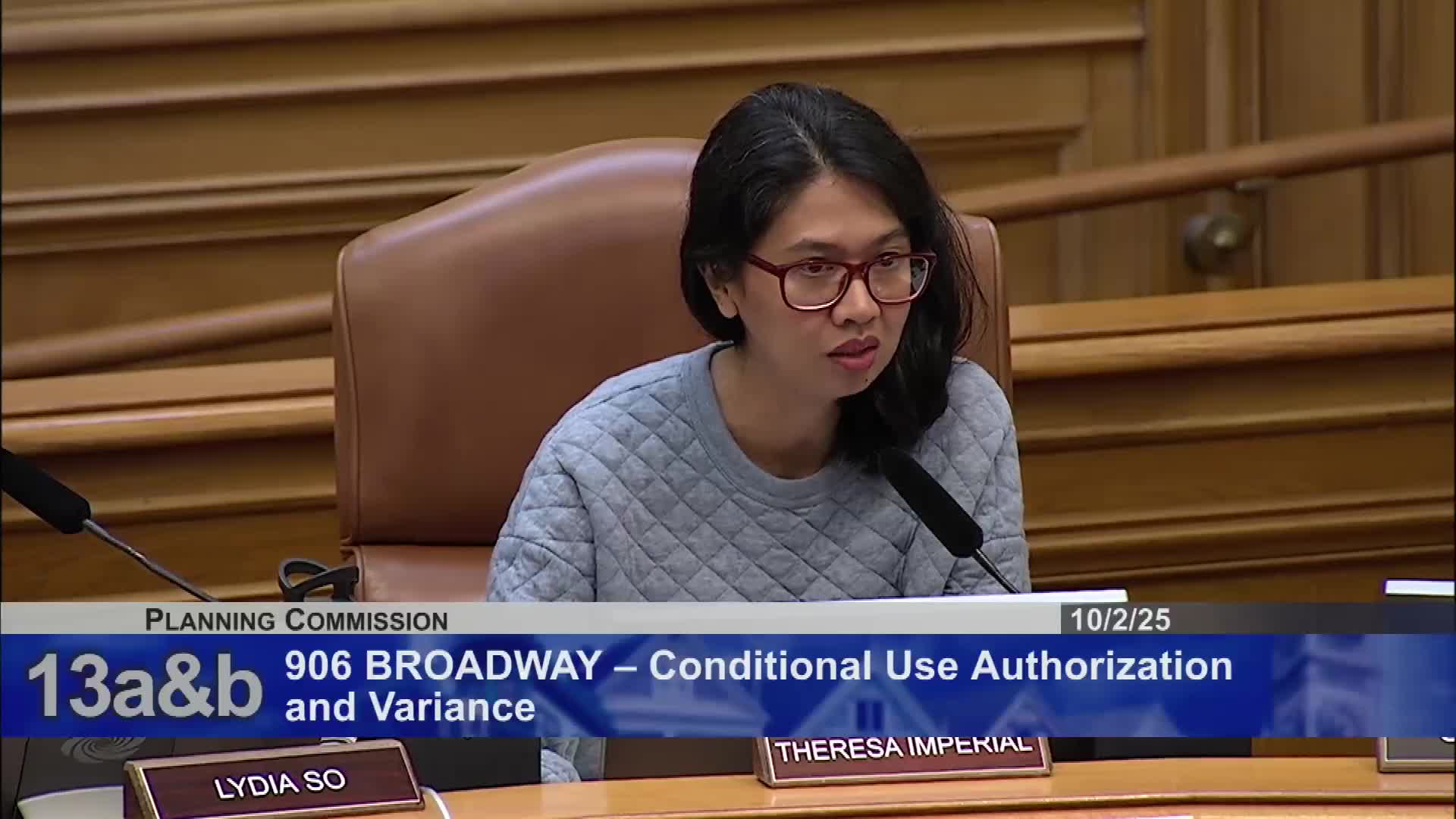Commission removes fixed hours from Jones patio CUA, requires one-year compliance report after neighborhood dispute
October 02, 2025 | San Francisco City, San Francisco County, California
This article was created by AI summarizing key points discussed. AI makes mistakes, so for full details and context, please refer to the video of the full meeting. Please report any errors so we can fix them. Report an error »

The Planning Commission voted 5–2 on Oct. 2 to strike a specific hours-of-operation restriction from a conditional-use condition for the outdoor activity area at 620 Jones (Jones & Geary) and instead affirm that operational hours and sound limits will be determined and enforced through the city's Entertainment Commission permitting process; the commission also required a one-year compliance memorandum and informational hearing to assess neighborhood impacts.
Planning staff presented background showing the restaurant has an established nighttime-entertainment use and a long operational history. The sponsor said Jones supports 25 employees and has adapted formats to keep the business viable. Neighbors and hotel operators, including Hotel Adagio, testified to repeated noise complaints, vibratory bass impacts, guest cancellations, and measurable declines in guest satisfaction; petitioners submitted signatures and letters opposing expanded outdoor hours. The Entertainment Commission reported it had received 66 sound complaints about the venue since September 2024 and had responded to 25 incidents.
Key operational facts discussed in the hearing included: the venue’s legal occupant load in the packet (approximately 600 persons), the Entertainment Commission’s temporary-permit framework that allows up to 10 special-event days per month with higher decibel allowances, and a recent entertainment-permit sound limit negotiated with the venue. The commission’s final motion removed the planning-code hour restriction in the CUA (leaving operational limits to the Entertainment Commission), and added a condition requiring the Planning Department to submit a compliance/good-neighbor memorandum after one year and schedule an informational hearing. The motion passed 5–2 (Commissioners Braun and Tsao opposed).
Votes at a glance
- Motion to remove the specific hours restriction from the planning condition and require a one-year compliance/informational report: passed 5–2 (Braun, Tsao dissenting).
Why it matters
The decision shifts operational-hour and sound enforcement to the Entertainment Commission, which handles sound measurements, event frequency, and related mitigation, while preserving Planning Commission oversight via a one-year review to evaluate compliance and community impacts.
Planning staff presented background showing the restaurant has an established nighttime-entertainment use and a long operational history. The sponsor said Jones supports 25 employees and has adapted formats to keep the business viable. Neighbors and hotel operators, including Hotel Adagio, testified to repeated noise complaints, vibratory bass impacts, guest cancellations, and measurable declines in guest satisfaction; petitioners submitted signatures and letters opposing expanded outdoor hours. The Entertainment Commission reported it had received 66 sound complaints about the venue since September 2024 and had responded to 25 incidents.
Key operational facts discussed in the hearing included: the venue’s legal occupant load in the packet (approximately 600 persons), the Entertainment Commission’s temporary-permit framework that allows up to 10 special-event days per month with higher decibel allowances, and a recent entertainment-permit sound limit negotiated with the venue. The commission’s final motion removed the planning-code hour restriction in the CUA (leaving operational limits to the Entertainment Commission), and added a condition requiring the Planning Department to submit a compliance/good-neighbor memorandum after one year and schedule an informational hearing. The motion passed 5–2 (Commissioners Braun and Tsao opposed).
Votes at a glance
- Motion to remove the specific hours restriction from the planning condition and require a one-year compliance/informational report: passed 5–2 (Braun, Tsao dissenting).
Why it matters
The decision shifts operational-hour and sound enforcement to the Entertainment Commission, which handles sound measurements, event frequency, and related mitigation, while preserving Planning Commission oversight via a one-year review to evaluate compliance and community impacts.
View full meeting
This article is based on a recent meeting—watch the full video and explore the complete transcript for deeper insights into the discussion.
View full meeting
